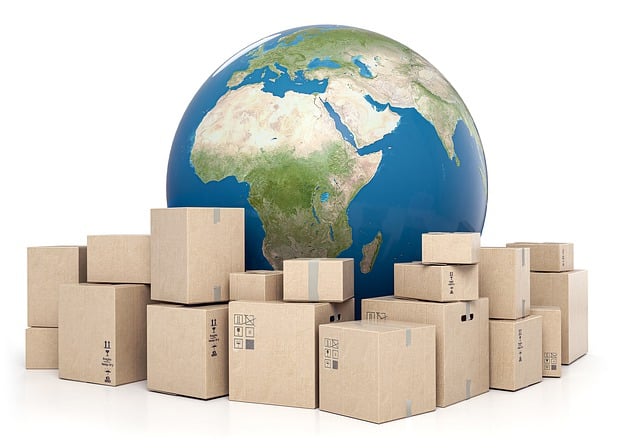The Importance of Free Trade Agreements
Today’s globalised society relies on free trade agreements (FTAs). FTAs are treaties that eliminate or reduce barriers to trade and investment between participating countries. Cross-border commerce and investment boost economic growth and create new business opportunities. Free trade agreements affect global trade and economic development. This article will discuss their pros and cons.
What Are Free Trade Agreements?
Free trade agreements (FTAs) lower trade and investment obstacles between countries. These agreements can involve commodities, services, investment, IP, and government procurement. FTAs can be bilateral, involving two countries, or multilateral, involving several countries.
Governments negotiate and sign free trade agreements to boost economic growth, business possibilities, commerce, and investment. FTAs ease cross-border trade and market expansion by lowering tariffs, quotas, and other trade restrictions.
Free Trade Agreements: How Do They Operate?
International law binds governments’ free trade agreements. They set out the terms and conditions for trade and investment between participating countries and establish a framework for future cooperation.
Free trade agreements typically include a range of provisions, such as:
- Tariff reduction or elimination schedules.
- Rules of origin to determine the nationality of goods.
- Intellectual property rights protections.
- Investment provisions, including provisions for dispute resolution.
- Labor and environmental standards.
- Government procurement rules.
- Provisions on services trade.
A signed free trade agreement must be ratified by each nation’s legislature. Once ratified, the agreement enters into force and the participating countries begin to implement its provisions.
The Benefits of Free Trade Agreements
Free trade agreements offer several benefits to participating countries, including:
Increased Trade and Investment
By lowering trade obstacles, free trade agreements boost trade and investment. Exports, imports, and foreign investment may increase.
Lower Prices for Consumers
Free trade agreements encourage competition and lower prices for customers.
Increased Economic Growth
Free trade agreements boost innovation and business growth. They can start new businesses.
Improved Standards of Living
Free trade agreements can improve standards of living by promoting economic growth, creating new jobs, and increasing access to goods and services.
The Implications of Free Trade Agreements
While free trade agreements offer several benefits, they can also have implications for participating countries. These include:
Job Displacement
Increased competition from free trade agreements might lead to business closures and employment losses in particular industries.
Unequal Distribution of Benefits
Some industries and regions may benefit more from free trade agreements.
Environmental and Social Impacts
Free trade agreements encourage trade and investment, which can pollute and abuse natural resources.
Loss of Sovereignty
Free trade agreements may oblige governments to follow trade rules, which may reduce their sovereignty.
Examples of Free Trade Agreements
There are several free trade agreements in place around the world. Some of the most significant ones include:
European Union (EU) Free Trade Agreements
The EU has free trade agreements with Canada, Japan, and South Korea. These agreements decrease trade obstacles and boost commerce and investment.
Comprehensive and Progressive Agreement for Trans-Pacific Partnership (CPTPP)
Free trade between 11 nations, including Australia, Canada, Japan, and New Zealand, is the Comprehensive and Progressive Agreement for Trans-Pacific Partnership (CPTPP). The pact reduces tariffs and other trade barriers and sets regulations for investment, intellectual property, and other trade areas.
ASEAN Free Trade Area (AFTA)
The 10 ASEAN nations formed the ASEAN Free Trade Area (AFTA). It aspires to lower or abolish regional tariffs on goods and set investment and trade norms.
Conclusion
Free trade agreements boost trade and investment and benefit member nations. FTAs can boost economy, business, and living standards by lowering trade obstacles.
However, FTAs can also have implications for participating countries, including job displacement, unequal distribution of benefits, environmental and social impacts, and loss of sovereignty.
Free trade agreements will shape global commerce as the world grows increasingly interconnected. Businesses, politicians, and citizens must comprehend FTAs and their effects on global commerce and economic development.
About US
At BMI, we’re dedicated to helping businesses connect and grow. Our platform offers a range of resources and tools designed to facilitate business transactions and networking opportunities.
Visit us today www.bookmyimports.com
As a technology partner, we work with TopTechSuggest.com to ensure our platform is innovative, easy to use, and always up to date.
If you’re interested in promoting your company or participating in our podcast, webinar, or stories, reach out to our partner, Remigration. Visit our website to learn more and join the BMI community.
Register here: for Collaboration
Email: at bookmyimports@gmail.com


The platform’s popularity seems to be growing, which means a larger audience for my ads.
Yes, Bookmyimports.com is growing day by and helping many companies to identify the best markets for their products..How to Export and Credit Insurance for the US
This article is a goldmine of information. The author has covered all the important aspects of the topic and provided valuable insights that are hard to find elsewhere. I appreciate the clarity of explanations and the practical examples that make the content relatable. Well done!